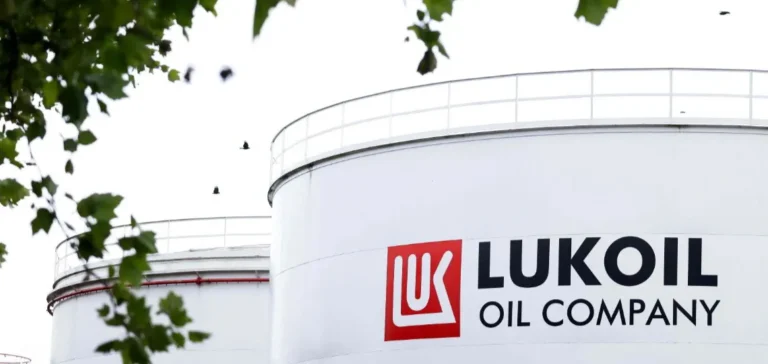Kazakh authorities are currently assessing their options regarding Lukoil’s involvement in several of the country’s major energy projects. This move follows the Russian oil producer’s decision to sell its international assets after recently imposed US sanctions.
The information was confirmed by Aidar Ryskulov, Chairman of the Kazakh sovereign wealth fund Samruk Kazyna, who stated that the impact of the sanctions is still under review. He indicated that a decision could be reached by the end of the week. The Russian group is directly involved in several large-scale ventures, including the Tengiz and Karachaganak oil fields, as well as the Caspian Pipeline Consortium, a strategic infrastructure used to export Kazakh crude via Russia’s port of Novorossiisk.
Energy projects at the core of Russia-Kazakhstan relations
Lukoil’s involvement in Kazakhstan’s oil infrastructure was built over strategic partnerships established since the late 1990s. These investments allow the country to export a significant share of its production through Russian networks. The Tengiz field, one of the world’s largest oil deposits, is seen as a cornerstone of Kazakhstan’s output, along with Karachaganak, which combines gas and condensate extraction.
Lukoil’s potential exit could shift governance balances within these projects. While no specific option has been publicly confirmed, Kazakh authorities will have to consider the operational continuity of the sites, as well as the technical and contractual requirements of the other shareholders.
Western sanctions reshape Lukoil’s strategy
Lukoil announced its intention to divest international assets following a new wave of US economic sanctions related to the Russia-Ukraine conflict. This marks one of the first concrete moves by a Russian energy player since the war began in February 2022. The planned sale could lead to a reconfiguration of Lukoil’s involvement in several countries, with Kazakhstan among the most affected.
The impact on export flows and logistical agreements will be closely monitored by regional stakeholders. Kazakhstan, deeply integrated into Russian transport networks for crude exports, may seek to limit the effects of Lukoil’s withdrawal on its energy revenues and contractual obligations to foreign partners.






















